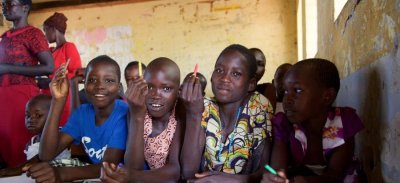The “Come Back Stronger” Culture of Uganda
Jamie Le Fanu Stuart and Kevin Okumu depict Uganda as a land of young entrepreneurs, thanks to the nation’s powerful and dynamic mentality
March 11th, 2019As part of the Berlin Economic Forum, the Institute for Cultural Diplomacy received on March 6th, Jamie Le Fanu Stuart and Kevin Okumu, founders of Hope Centre Uganda. Surprisingly, despite decades of wars, Uganda is ranked the most entrepreneurial country in the world. What explains this successful revival? The speakers provided part of the answer: culture, and more specifically the “come back stronger” mind-set of Ugandans.
Uganda has a young population (77% under the age of 30), 27% of its citizens are living in poverty, and youth unemployment is prevailing. However, Jamie Stuart and Kevin Okumu were optimistic about the country’s ability to create new opportunities for development thanks to the culture.
As Uganda underwent violence during decades of wars, the conference was titled “Cultural, Social and Economic Development in Post-Conflict communities.” Jamie Stuart insisted that development should not only be measured through economic indicators such as the GDP, but should also include human capacity, which showcases the future potential of a country’s economy rather than the current state.
Human capacity arises from intangible assets such as health, values, skills, competencies and other attributes embodied in individuals. Despite wars, Ugandans are endowed with a “come-back stronger” mentality which results in ambitious attitudes. The country is actually ranked the most entrepreneurial of the world. However, practical barriers remain such as a lack of finance and technology. During the conference, Jamie Stuart cited Mohammed Yunnus: “Eliminating poverty is a question of removing the barriers faced by the poor in order to unleash their creativity to solve their problems.” The Hope Centre she co-founded with Kevin Okumu in the Gulu community, Northern Uganda, aims at removing the barriers faced by the poor to let the entrepreneurship spirit of the young nation be concretized. Indeed, the center provides a safe space for education, collaboration and innovation for the youth and women, which Jamie Stuart believes is the untapped potential of the country. It encourages the lower strata and marginalized people of the society to become creative entrepreneurs and leaders.
The center started with vocational education programs (literacy and computer classes; basic business and financial coaching, trainings etc.). Then, the Hope Center Uganda launched a microfinance program, Uplift, that provides small loans and business trainings to groups of women. Finally, realizing that health issues represent an obstacle, the center decided to launch a girl power program, which teaches women how to manufacture their own reusable sanitary pads. The center is now looking at agribusiness opportunities.
During these programs, the youth and women acquire essential skills such as team-work, accountability, and leadership. It reinforces their problem-solving, community-oriented mind-sets and allows them to fully develop their entrepreneurial potential. In brief, Hope Centre Uganda contributes to the development of Uganda. Indeed, as Jamie Stuart said, development is a much more than just a country’s current economic performance, development aims at improving human capacity and well-being.
To know more about Hope Center Uganda: hopegulu.org
References:
- https://hopegulu.org/house-of-hope/ https://hopegulu.org/house-of-hope/
- https://hopegulu.org/about/blog/projects/ https://hopegulu.org/about/blog/projects/


